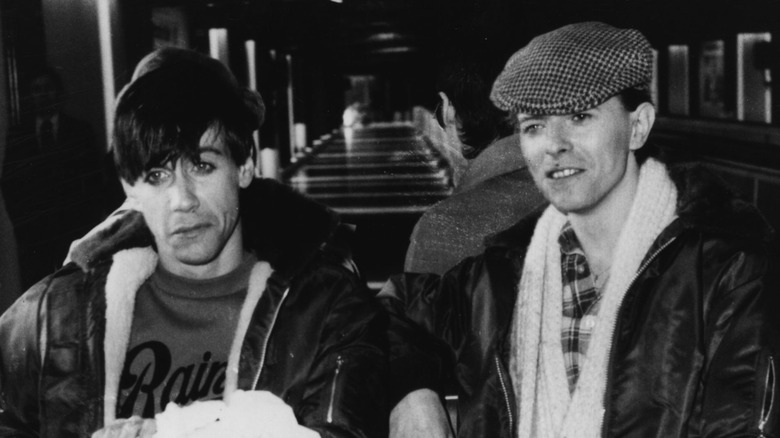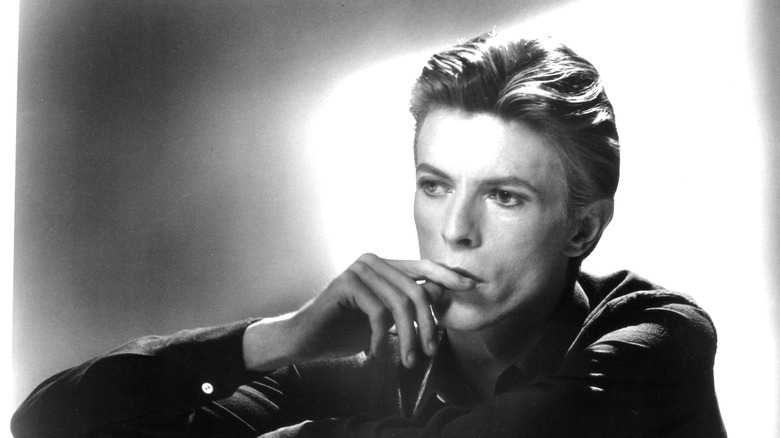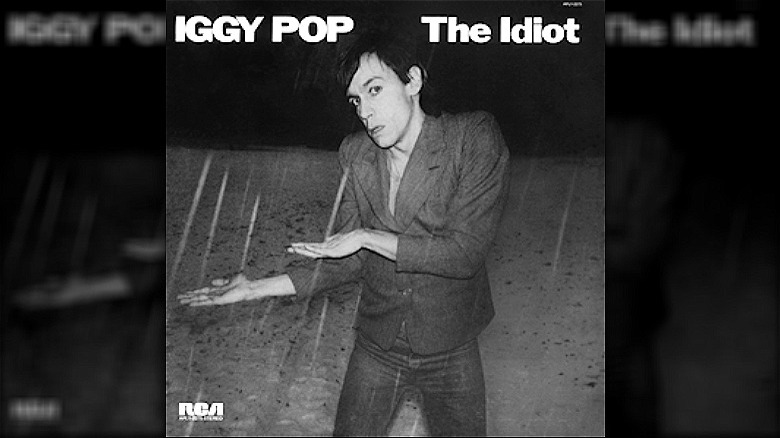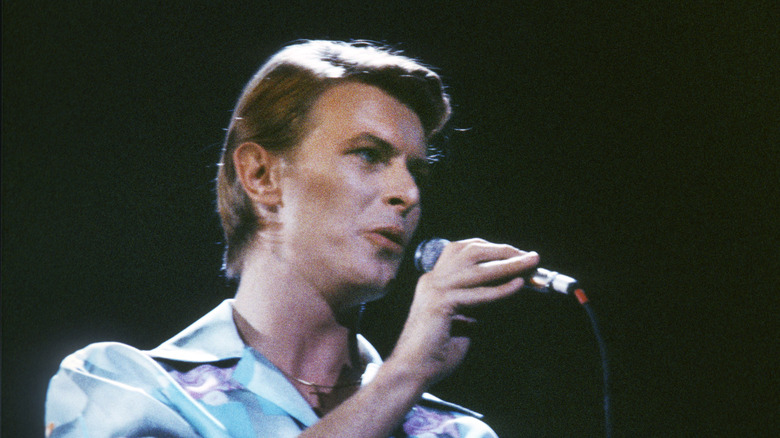The Truth About Iggy Pop And David Bowie's Relationship
When David Bowie died on January 10, 2016, Iggy Pop confessed to The New York Times Bowie had "resurrected" him. They met in 1971, and Bowie produced "Raw Power," the third album released by Iggy Pop's band The Stooges. By 1974, though, their drug use — heroin for Iggy Pop and cocaine for Bowie — had negatively affected their lives. After The Stooges fell apart for the second time due to Pop's heroin use, he checked himself into the Los Angeles Neuropsychiatric Institute, a mental health facility, where he received psychological treatment.
"By 1975, I was totally into drugs, and my willpower had been vastly depleted," Pop, born James Osterberg in Michigan in 1947, later recalled, per "David Bowie: The Golden Years." "But still, I had the brains to commit myself to a hospital, and I survived with willpower and a lot of help from David Bowie. I survived because I wanted to." Afterward, Bowie invited him to tag along on his Isolar tour in support of his album "Station to Station." They then moved to West Berlin together to kick drugs and revitalize their work. Pop admitted in a 1990 MTV News interview that in the wake of the Stooges' breakup and before Bowie got him back on his feet, he'd "basically" become "a street person in LA."
They moved to West Berlin together
Iggy Pop believes the move out of LA and David Bowie's suggestion to work together on Pop's next album saved his career. While living in West Berlin, the two musicians traveled to French and German studios to record their albums, with Iggy Pop releasing "The Idiot" and "Lust for Life," while Bowie composed his famed Berlin Trilogy of "Low," "Heroes," and "Lodger." Each of these albums has attained classic status, and from then on, the two remained friends. "I think Bowie saw in Iggy a kind of weird doppelgänger," musician and writer Lenny Kaye, who was friends with both men, told The New Yorker. "The records they made in Berlin pulled them both out of this pit that they'd dug themselves into."
What drew David Bowie — born David Jones in South London in 1947 — and Iggy Pop together had as much to do with their differences as similarities. Pop had a raw and rugged persona and an underground cachet that Bowie didn't have. "I wasn't executive material," Pop said, according to "David Bowie's Low." "I couldn't do the things he seemed to do so well and so easily. Yet I knew I had something he didn't have and could never have." For Pop, it was his friend's British sense of showmanship and theatrics that drew him in.
Poor Jim, in a way, became a guinea pig
The first album recorded during this traveling period was Iggy Pop's "The Idiot," which became a way for David Bowie to hone his own sound before putting out an album of his own. "Poor Jim, in a way, became a guinea pig for what I wanted to do with sound," Bowie recalled, per "David Bowie's Low." "I didn't have the material at the time, and I didn't feel like writing at all. I felt much more like laying back and getting behind someone else's work, so that album was opportune, creatively." This was because Iggy Pop's solo career was nonexistent, so he could take the risks needed for Bowie to experiment.
While they worked on the song "Nightclubbing," though, the two came to a disagreement. Bowie wanted to replace the Roland synthesizer with a real drummer, while Pop wanted it to stay. Bowie explained he couldn't put out a sound like that. "No," Pop agreed, "but I can," according to U Discover Music. The album exploded, influencing Joy Division, Siouxsie and the Banshees, and Nine Inch Nails and prefiguring the post-punk sound that would emerge in the next couple of years and letting Bowie experiment further in his own work.
They helped each other
David Bowie not only produced Iggy Pop's first solo record but he also co-wrote all the songs and played many of the instruments. Pop returned the favor by providing backing vocals on Bowie's album "Low." Even after the album's release, Bowie helped his friend out, playing keyboards during Pop's live shows from that period.
With his second solo record, Iggy Pop had learned enough from "The Idiot" that he was able to record his hit album, "Lust for Life," in just eight days, explaining in a later interview (per NME), "See, Bowie's a hell of a fast guy. I realized I had to be quicker than him — otherwise whose album was it gonna be?" So, both had received their own resurrection, and their friendship continued as their careers diverged. When Bowie died, Pop paid tribute to their relationship on Twitter. "David's friendship was the light of my life," he wrote. "I never met such a brilliant person. He was the best there is."
If you or anyone you know needs help with addiction issues, help is available. Visit the Substance Abuse and Mental Health Services Administration website or contact SAMHSA's National Helpline at 1-800-662-HELP (4357).



